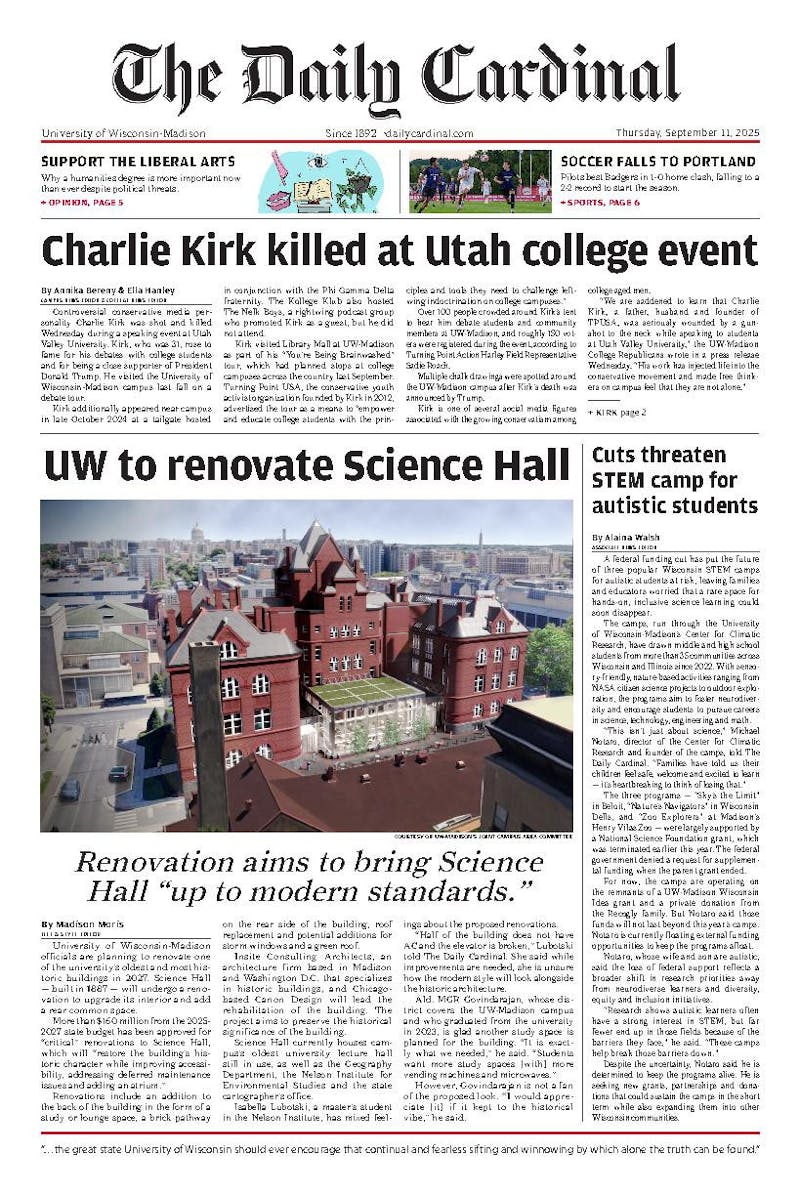Former Massachusetts Gov. Mitt Romney announced Thursday he would suspend his campaign for the Republican Presidential nomination.
This announcement comes just two days after Super Tuesday,"" which brought Romney's delegate total up to 286, putting him in second place behind U.S. Sen. John McCain, R-Ariz.
Bradley Engle, chair of Students for Mitt Romney at UW-Madison, said Romney dropped out instead of hurting the Republicans' chance of winning in the November general election.
Engle said Romney's main reason for wanting to ensure a Republican win was the War on Terror.
""If Hillary or Barack wins they will pull us out of Iraq, and he believes that they won't be nearly as tough on the War on Terror and the war against evil extremism,"" Engle said.
Engle said he would now be supporting McCain and also thought Republican voters would ""rally"" around McCain.
UW-Madison professor of political science Charles Franklin said after Romney's decision, it is unclear how the Republican race would now develop.
Franklin said supporters of one candidate do not always support the same alternative, so it is unlikely all Romney supporters would vote for one of the two remaining candidates.
Romney's exit, according to Franklin, could impact the Wisconsin Republican primary Feb. 19.
""Huckabee's strengths have been among highly religious groups. [Wisconsin has] a good bit of that '¦but not nearly as many as in the Southern states he won on Tuesday,"" Franklin said.
Former Arkansas Gov. Mike Huckabee remaining in the race, according to Franklin, means McCain does not necessarily have a clear path to the nomination.
Franklin said it is possible McCain could be beat, but he said it would be difficult for Huckabee.
Additional election news shows more than 3 million eligible citizens under the age of 30 took part in the primaries on Tuesday, according to a report released by The Center for Information and Research on Civic Learning and Engagement. In some of the eight states that took part in ""Super Tuesday"" in 2000, youth turnout tripled or quadrupled in 2008.
More than 2 million of those under 30 voted in the Democratic contests, compared with about 900,000 in the Republican contests.





